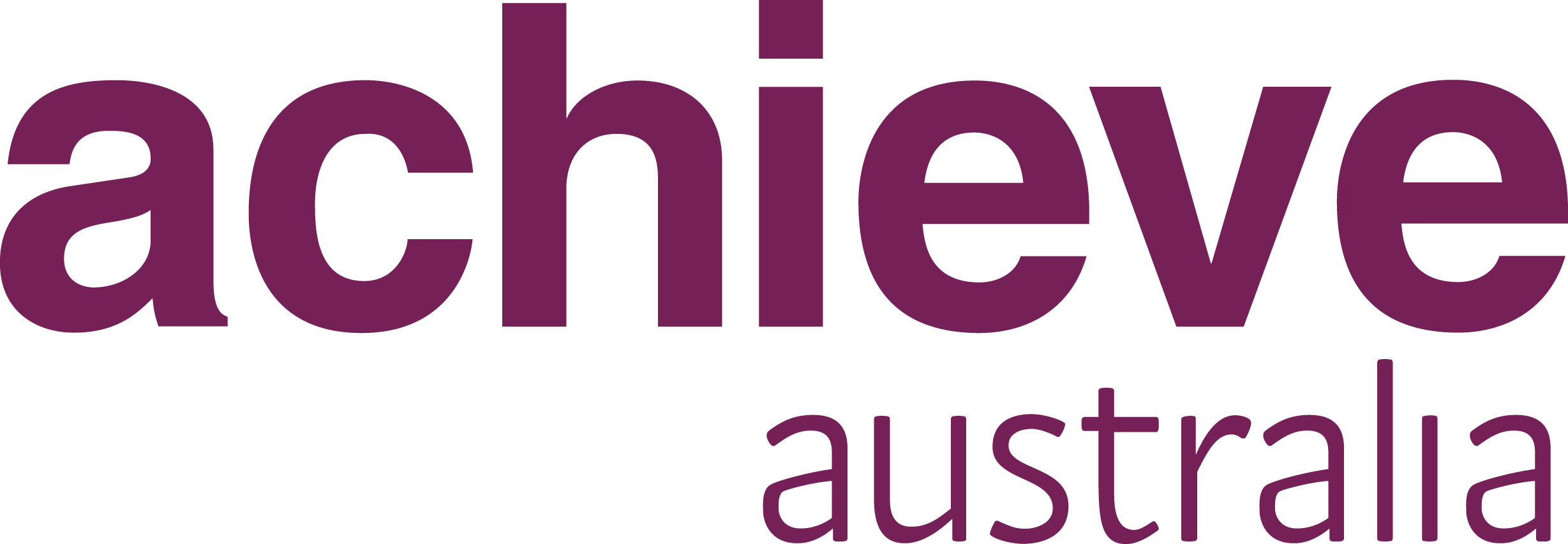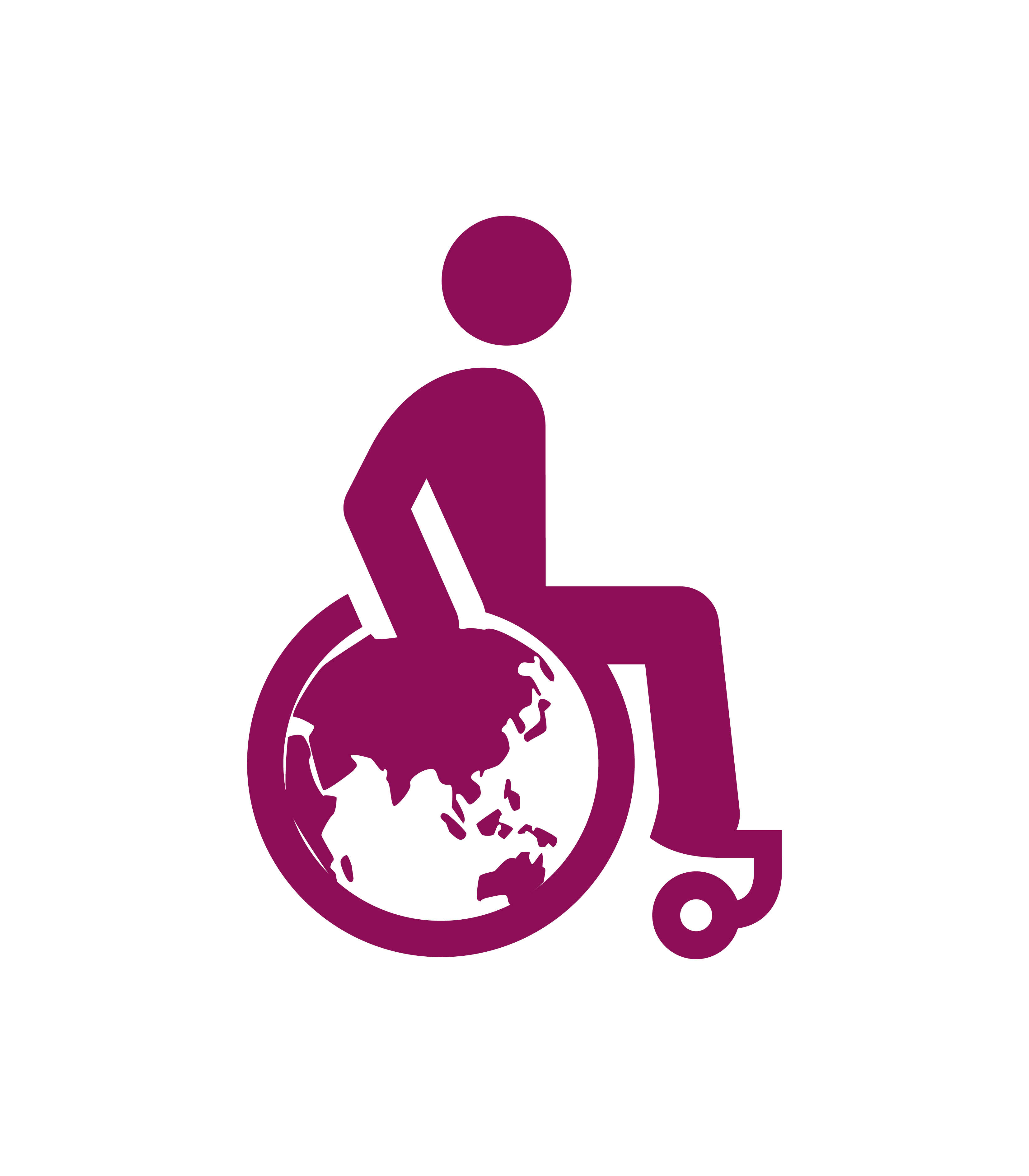Publishing date 11/04/2023
by Kate Southam
Use inclusive language to create a world of belonging
Words create worlds so here at Achieve Australia the team is always looking for ways to ensure the language we use is inclusive.
We want to share some of the great resources we rely on to promote a sense of belonging for everyone in our community. There are many guides out there that can be useful but here are a few of our favourites.
People with Disability Australia (PWDA) Language Guide
PWDA’s Language Guide is excellent. It explains commonly misused terms and suggests suitable alternatives plus educates people about the important topic of ‘Ableism’.
“People with disability are people first, who have families, who work, and who participate in our communities,” say the guide’s authors.
“The choices people make about language have an impact on the way people with disability feel and are perceived in society.”
The PWDA language guide is a great way to learn about person-first language and what Ableist language is and how to avoid it while finding better ways to express yourself.
A few highlights
Describing a person’s disability - Where possible, ask the person how they like to be described. If in doubt, use person-first language or refer to that person by name. Reference a person’s disability only when it is relevant but focus on the person, not the disability. Use the word disability as an uncountable noun, for example, person or people with disability, NOT person with a disability or people with disabilities.
Don’t describe a person as ‘being’ their condition – for example, ‘Vanessa is paraplegic.’ ‘Vanessa has paraplegia’ is correct. The exception is people and groups that use identity-first language to describe themselves, in which case you should do the same: ‘Vanessa is Deaf.’ Note the capital “D”. That’s explained in the guide.
Ableism - Ableism is the systemic exclusion and oppression of people with disability by people without disability. It is often expressed and reinforced through language. Ableist language refers to language that is derogatory, abusive or negative about disability.
Don’t speak for – (When telling a story involving a person with disability) be sure to centre that story around the person/people with disability. All too often, people with disability are spoken for, or over, by family members, advocates, academics and other non-disabled people who claim authority and expertise over our lives.
Use ‘vulnerable’ with caution - The term ‘vulnerable’ comes from the Latin word for ‘wound’ and can suggest that people with disability are frail and in need of protection. We aren’t inherently vulnerable because of our disability, but rather because of the acts and/or omissions of the society in which we live.
Diversity Council of Australia (DCA) - Words at Work guide and video
DCA offer a Words at Work guide and a fun but informative video to promote diversity inclusion in the workplace.
A few highlights
Language can cut people out or cut them down – nicknames and short form terms such as “girls” to describe female colleagues or phrases like “that’s so gay” are offensive
Out of touch labels don’t do justice to who we are today - terms from decades past should not be used to describe people
When it comes to words at work, we all have to walk the talk – be mindful of how the way you speak makes others feel.
Australian Government Style Guide – inclusive language
The Australian Government Style Guide covers everything from grammar to writing structure. Its section on inclusive language is great resource and has been designed to promote the use of language appropriate and respectful of the diversity of Australia’s peoples.
The inclusive language section covers a wide range of areas including appropriate language to use for people with disability, Aboriginal and Torres Strait Islander peoples, diverse language and culture groups, age diversity, and sexual diversity and identity.
Navigating the inclusive language part of the Australian Style Guide is best done using the left side navigation panel or the various tiles about a particular area such as Aboriginal and Torres Strait Islander Peoples.
A few highlights
No single Aboriginal and Torres Strait Islander identity – First nations peoples live on many countries across Australia with different languages and cultural practices
What is not respectful – the guide provides a list of terms and approaches to avoid. These include avoiding terms like ‘myth’, ‘legend’ or ‘folklore’ when referring to the beliefs of First Nations peoples.
Ageist stereotypes - words that carry stereotypes, for example ‘elderly’, are not acceptable. “Older” people instead of “old people” and avoid simplistic terms that invite bias such as “old and young”.
What’s in a name? Inclusion or exclusion - When you ask people their name, or write about a person’s name avoid using, ‘Christian name’, ‘first name’, ‘forename’ or ‘surname’. These terms all take for granted the European conventions and order of names. Instead, use ‘given name’ and ‘family name’
Speak to the person, not their difference – when writing about people from diverse language and cultural groups or any group, use terms and references that are respectful and recognise the person as an individual first.
Avoid using the acronym CALD – the acronym to describe culturally and linguistically diverse’ communities is dehumanising. Mention people’s cultural affinity or identity only when you need to.
Inclusive of people living in Australia - People living in Australia are Australians. If a cultural reference is relevant then consider using ‘Japanese-Australian community’ rather than ‘Japanese living in Australia’.
Oxfam’s Inclusive Language Guide
On 13 March 2023, Oxfam launched its 92-page Inclusive Language Guide because “language has power, in particular the power both to oppress and to liberate”.
Oxfam is a non-government agency that works with communities across the globe to build capacity and improve quality of life.
The non-government organisation (NGO) says in the past it and other NGOs used language from colonial times instead of talking about working in partnership with communities.
This often reinforced negative stereotypes about the people NGOs work with. “This was wrong, and we are learning from decolonial activists to change that,” Oxfam explains. “Making conscious choices in language can reframe issues, rewrite-tired stories, challenge problematic ideas and build a radically better future…”
The guide covers a range of areas including disability where a glossary of terms and a list of “Dos and Don’ts” is provided.
A few highlights
Don’t use “beneficiaries”, “aid recipients” – better descriptions for NGOs to use include “people with work with”, “service users” and “project participants”. This language acknowledges people’s right to food, shelter, asylum, and political participation.
Guide’s use of English is one of its limitations – Oxfam says its guide is supporting people who have to work and communicate in the English language as part of a colonial legacy and that the dominance of English is itself one of the key issues that must be addressed.
Oxfam guide a work in progress - the agency recognise there will be many views, objections and suggestions about what it recommends. People can provide feedback via email - policyandpractice@oxfam.org.uk.
Explore more topics
- Accessibility
- inclusion
- Achieve Australia
- disability
- belonging
- Community
- Employment
- The Sewing Basket
- Advocacy
- disability employment
- Accessible
- My Life My Say
- Celebrating people we support
- NDIS
- 2022
- Meet our Achievers
- blog
- people with disability
- travel
- women with disability
- Art
- Australia
- COVID-19
- Disability services
- Good nutrition
- Guildford
- Health tips
- Mental wellbeing
- NDS
- Sharing milestones
- Sydney
- achievable
- assistance dogs
- depression
- disability communications
- disability inclusion
- election
- employee of the year
- intellectual disability
- motherhood
- pregnancy
- social inclusion
- support workers

